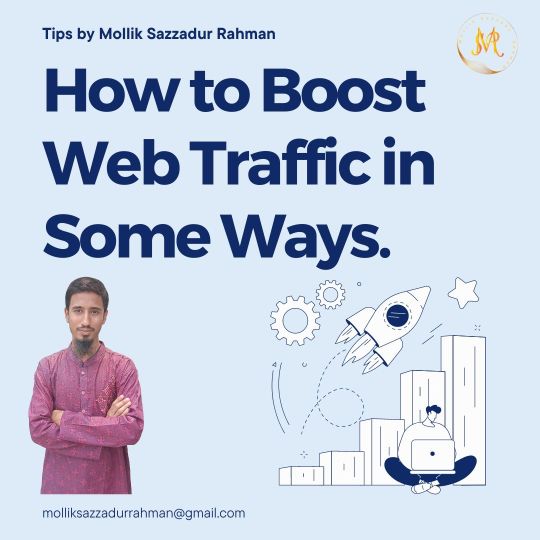#Digital Marketting
Text
SOCIAL MEDIA MARKETING

Social media marketing is a dynamic and influential strategy that businesses employ to connect with their target audience, enhance brand visibility, and drive engagement. In an era dominated by digital interactions, social media platforms serve as powerful channels for reaching potential customers and building meaningful relationships. This article explores the key components, benefits, and challenges of social media marketing, shedding light on its ever-evolving landscape.
Introduction: In recent years, the landscape of marketing has undergone a significant transformation, with social media emerging as a central player. Social media platforms such as Facebook, Instagram, Twitter, LinkedIn, and TikTok have become integral parts of people's daily lives, presenting businesses with unparalleled opportunities to connect with their audience. Social media marketing leverages these platforms to promote products, services, or brand messages, aiming to foster brand awareness and drive conversions.
Key Components of Social Media Marketing
Content Strategy: Creating compelling and shareable content lies at the core of social media marketing. Whether it's captivating visuals, informative articles, or engaging videos, businesses must craft content that resonates with their target audience.
Platform Selection: Each social media platform has its unique user demographics and features. A successful social media strategy involves selecting the platforms most relevant to the business and its target audience. For instance, Instagram might be ideal for visual-centric content, while LinkedIn is more business-focused.
Audience Engagement: Social media is a two-way street. Engaging with the audience through comments, likes, and shares builds a sense of community and strengthens the brand-consumer relationship.
Analytics and Measurement: To optimize social media efforts, businesses must track and analyze key metrics. Insights into reach, engagement, and conversion rates provide valuable data for refining strategies and achieving better results.
Benefits of Social Media Marketing
Global Reach: Social media platforms transcend geographical boundaries, allowing businesses to reach a global audience. This unparalleled reach is particularly advantageous for small businesses looking to expand their market.
Cost-Effective Advertising: Compared to traditional advertising methods, social media marketing often proves more cost-effective. Paid advertising options on platforms like Facebook and Instagram provide targeted exposure at a fraction of the cost of traditional advertising channels.
Brand Authenticity: Social media offers a platform for brands to showcase their personality and values. Authenticity resonates with consumers, fostering trust and loyalty. Brands that actively engage with their audience on social media appear more approachable and human.
Real-Time Communication: Social media facilitates instant communication. Businesses can respond to customer inquiries, address concerns, and share updates in real time. This agility contributes to a positive customer experience.
Challenges of Social Media Marketing
Algorithm Changes: Social media algorithms frequently evolve, impacting the visibility of content. Businesses must stay agile and adapt their strategies to algorithm changes to maintain a strong online presence.
Negative Feedback: While social media can amplify positive feedback, it can also magnify negative experiences. Handling criticism and negative comments professionally is crucial to maintaining a positive brand image.
Saturation and Competition: With millions of businesses vying for attention, standing out in the saturated social media landscape can be challenging. Businesses need to continually innovate and create content that captures audience interest.
Measuring ROI: Quantifying the return on investment (ROI) for social media marketing efforts can be elusive. Determining the impact of social media on sales and revenue requires sophisticated analytics and attribution models.
Trends in Social Media Marketing
Video Dominance: The rise of short-form videos, live streams, and interactive video content has reshaped social media. Businesses are increasingly incorporating video into their strategies to capture audience attention.
Ephemeral Content: Stories, which disappear after a set period, have gained popularity. Platforms like Instagram and Snapchat have embraced ephemeral content, offering businesses a way to share temporary, engaging content.
Influencer Collaborations: Partnering with influencers has become a prominent strategy. Influencers, with their dedicated followers, can significantly amplify a brand's reach and credibility.
Augmented Reality (AR): AR filters and features on platforms like Instagram and Snapchat provide interactive and immersive brand experiences. Businesses are leveraging AR to engage users in creative and entertaining ways.
for more details kindly visit this site:
Website:https://digitaldiscovery.institute/
Address:C 210 A Industrial Area, Phase 8B, Sahibzada Ajit Singh Nagar, Punjab 140308
Mobile: 07087602319
Email:[email protected]
1 note
·
View note
Text


#the amazing digital circus#digital circus#gator#alligator#gummigoo#marketable plushies#glitch productions#gif#gooseworx
5K notes
·
View notes
Text
Who Is an SEO Expert in the UK?
In the digital age, where online visibility can make or break a business, the role of an SEO (Search Engine Optimization) expert is of paramount importance. In the United Kingdom, the demand for SEO expertise has grown exponentially as businesses seek to establish a strong online presence and compete in the global marketplace. But who exactly is an SEO expert in the UK, and what sets them apart in this dynamic field? In this article, we will delve into the world of SEO experts, their skills, qualifications, and the value they bring to businesses.
Defining the Professional SEO Optimizer.
An SEO expert UK is a professional who specializes in optimizing websites and online content to improve their visibility on search engines like Google, Bing, and Yahoo. Their ultimate goal is to increase organic (non-paid) traffic to a website, which can result in higher rankings in search engine results pages (SERPs). This, in turn, can lead to more visitors, increased brand visibility, and higher conversion rates.

Skills and Qualifications As an SEO Person.
Becoming an SEO expert in the UK requires a diverse skill set and ongoing learning. Here are some key skills and qualifications commonly associated with SEO experts:
Technical Proficiency: SEO experts must understand website architecture, HTML, and other technical aspects of websites. They optimize websites for faster loading times, mobile-friendliness, and security.
Keyword Research: Identifying the right keywords is crucial. SEO experts use tools to research and select keywords that align with a website's goals and target audience.
Content Optimization: They optimize website content, including text, images, and videos, to be both user-friendly and search engine-friendly. This involves creating high-quality, relevant content that incorporates targeted keywords.
Link Building: Building a network of high-quality backlinks is essential for SEO. Experts work to acquire links from reputable websites to improve a site's authority and credibility.
Analytics and Data Interpretation: SEO experts analyze website performance data using tools like Google Analytics. They use these insights to make informed decisions and adjustments to their SEO strategies.
Algorithm Knowledge: Staying up-to-date with search engine algorithm changes is crucial. SEO experts must adapt their strategies to meet the evolving criteria of search engines.
Communication Skills: Effective communication is key, as SEO experts often work closely with content creators, web developers, and business owners to implement their strategies.
Certifications: While not mandatory, certifications like Google Analytics and Google Ads can demonstrate an SEO expert's proficiency.
Experience: Practical experience is invaluable in SEO. An expert's ability to adapt and strategize effectively often comes from years of hands-on work.
The Value of an SEO Consultant in the UK.
The role of an SEO expert in the UK is multi-faceted, and their value extends beyond improving search engine rankings. Here are some of the ways in which they contribute to a business's success:
Increased Organic Traffic: By optimizing a website for search engines, SEO experts can drive more organic traffic. This means more potential customers finding your website through search engines without the need for costly advertising.
Higher Search Engine Rankings: SEO experts work diligently to improve a website's search engine rankings. Appearing on the first page of search results is crucial, as most users don't venture beyond it.
Improved User Experience: SEO experts focus on making websites more user-friendly. This leads to better user experiences, lower bounce rates, and increased engagement, all of which contribute to higher search rankings.
Local SEO: For businesses serving a local market, SEO experts can optimize content for local searches, helping attract nearby customers.
Competitive Advantage: In a competitive market, having an SEO expert on your team can be a significant advantage. They can help your business stand out in search results and attract more customers than your competitors.
Data-Driven Insights: SEO experts rely on data to make informed decisions. They can identify trends, user behavior, and areas for improvement, enabling businesses to adapt their strategies effectively.
Long-Term Growth: SEO is not a one-time effort. It's an ongoing process that can provide long-term benefits. SEO experts work to maintain and improve rankings, ensuring sustained growth.
Conclusion
An SEO expert in the UK is a skilled professional who plays a vital role in enhancing a business's online presence and driving organic traffic to their website. With a diverse skill set, technical proficiency, and a commitment to staying current with industry trends, these experts are invaluable assets to businesses of all sizes. As the digital landscape continues to evolve, the demand for SEO expertise in the UK is likely to grow, making the role of an SEO expert more critical than ever in helping businesses succeed in the online world.
#SEO expert#SEO Consultant in UK#Local SEO#Keyword Research#On Page SEO#Off Page SEO#Technical SEO#Digital Marketting#link building#Backlinks
1 note
·
View note
Text

wizard husbands go to the farmers market
#wizard#illustration#wizardcore#illustrators on tumblr#digital art#lgbtq#gay#artists on tumblr#artwork#drawing#theartofmadeline#im not super happy with how this came out BUT#i had the concept and i did it#so that makes it good#ANYWAYS they are gay and at the wizard market !!!#every gay couple has one person who cant stop buying things#and one person who has to hold all the shit they buy#eyes off of the red wizards big naturals !!#wizard posting#wizard blogging
8K notes
·
View notes
Photo

The god stared back
#scaramouche#genshin impact#fanart#digital art#it's been another wonderful 3 minutes of screentime#the drip marketing is real and i'm on my knees collecting every drop
13K notes
·
View notes
Text
UK publishers suing Google for $17.4b over rigged ad markets

THIS WEEKEND (June 7–9), I'm in AMHERST, NEW YORK to keynote the 25th Annual Media Ecology Association Convention and accept the Neil Postman Award for Career Achievement in Public Intellectual Activity.

Look, no one wants to kick Big Tech to the curb more than I do, but, also: it's good that Google indexes the news so people can find it, and it's good that Facebook provides forums where people can talk about the news.
It's not news if you can't find it. It's not news if you can't talk about it. We don't call information you can't find or discuss "news" – we call it "secrets."
And yet, the most popular – and widely deployed – anti-Big Tech tactic promulgated by the news industry and supported by many of my fellow trustbusters is premised on making Big Tech pay to index the news and/or provide a forum to discuss news articles. These "news bargaining codes" (or, less charitably, "link taxes") have been mooted or introduced in the EU, France, Spain, Australia, and Canada. There are proposals to introduce these in the US (through the JCPA) and in California (the CJPA).
These US bills are probably dead on arrival, for reasons that can be easily understood by the Canadian experience with them. After Canada introduced Bill C-18 – its own news bargaining code – Meta did exactly what it had done in many other places where this had been tried: blocked all news from Facebook, Instagram, Threads, and other Meta properties.
This has been a disaster for the news industry and a disaster for Canadians' ability to discuss the news. Oh, it makes Meta look like assholes, too, but Meta is the poster child for "too big to care" and is palpably indifferent to the PR costs of this boycott.
Frustrated lawmakers are now trying to figure out what to do next. The most common proposal is to order Meta to carry the news. Canadians should be worried about this, because the next government will almost certainly be helmed by the far-right conspiratorialist culture warrior Pierre Poilievre, who will doubtless use this power to order Facebook to platform "news sites" to give prominence to Canada's rotten bushel of crypto-fascist (and openly fascist) "news" sites.
Americans should worry about this too. A Donald Trump 2028 presidency combined with a must-carry rule for news would see Trump's cabinet appointees deciding what is (and is not) news, and ordering large social media platforms to cram the Daily Caller (or, you know, the Daily Stormer) into our eyeballs.
But there's another, more fundamental reason that must-carry is incompatible with the American system: the First Amendment. The government simply can't issue a blanket legal order to platforms requiring them to carry certain speech. They can strongly encourage it. A court can order limited compelled speech (say, a retraction following a finding of libel). Under emergency conditions, the government might be able to compel the transmission of urgent messages. But there's just no way the First Amendment can be squared with a blanket, ongoing order issued by the government to communications platforms requiring them to reproduce, and make available, everything published by some collection of their favorite news outlets.
This might also be illegal in Canada, but it's harder to be definitive. The Canadian Charter of Rights and Freedoms was enshrined in 1982, and Canada's Supreme Court is still figuring out what it means. Section Two of the Charter enshrines a free expression right, but it's worded in less absolute terms than the First Amendment, and that's deliberate. During the debate over the wording of the Charter, Canadian scholars and policymakers specifically invoked problems with First Amendment absolutism and tried to chart a middle course between strong protections for free expression and problems with the First Amendment's brook-no-exceptions language.
So maybe Canada's Supreme Court would find a must-carry order to Meta to be a violation of the Charter, but it's hard to say for sure. The Charter is both young and ambiguous, so it's harder to be definitive about what it would say about this hypothetical. But when it comes to the US and the First Amendment, that's categorically untrue. The US Constitution is centuries older than the Canadian Charter, and the First Amendment is extremely definitive, and there are reams of precedent interpreting it. The JPCA and CJPA are totally incompatible with the US Constitution. Passing them isn't as silly as passing a law declaring that Pi equals three or that water isn't wet, but it's in the neighborhood.
But all that isn't to say that the news industry shouldn't be attacking Big Tech. Far from it. Big Tech compulsively steals from the news!
But what Big Tech steals from the news isn't content.
It's money.
Big Tech steals money from the news. Take social media: when a news outlet invests in building a subscriber base on a social media platform, they're giving that platform a stick to beat them with. The more subscribers you have on social media, the more you'll be willing to pay to reach those subscribers, and the more incentive there is for the platform to suppress the reach of your articles unless you pay to "boost" your content.
This is plainly fraudulent. When I sign up to follow a news outlet on a social media site, I'm telling the platform to show me the things the news outlet publishes. When the platform uses that subscription as the basis for a blackmail plot, holding my desire to read the news to ransom, they are breaking their implied promise to me to show me the things I asked to see:
https://www.eff.org/deeplinks/2023/06/save-news-we-need-end-end-web
This is stealing money from the news. It's the definition of an "unfair method of competition." Article 5 of the Federal Trade Commission Act gives the FTC the power to step in and ban this practice, and they should:
https://pluralistic.net/2023/01/10/the-courage-to-govern/#whos-in-charge
Big Tech also steals money from the news via the App Tax: the 30% rake that the mobile OS duopoly (Apple/Google) requires for every in-app purchase (Apple/Google also have policies that punish app vendors who take you to the web to make payments without paying the App Tax). 30% out of every subscriber dollar sent via an app is highway robbery! By contrast, the hyperconcentrated, price-gouging payment processing cartel charges 2-5% – about a tenth of the Big Tech tax. This is Big Tech stealing money from the news:
https://www.eff.org/deeplinks/2023/06/save-news-we-must-open-app-stores
Finally, Big Tech steals money by monopolizing the ad market. The Google-Meta ad duopoly takes 51% out of every ad-dollar spent. The historic share going to advertising "intermediaries" is 10-15%. In other words, Google/Meta cornered the market on ads and then tripled the bite they were taking out of publishers' advertising revenue. They even have an illegal, collusive arrangement to rig this market, codenamed "Jedi Blue":
https://en.wikipedia.org/wiki/Jedi_Blue
There's two ways to unrig the ad market, and we should do both of them.
First, we should trustbust both Google and Meta and force them to sell off parts of their advertising businesses. Currently, both Google and Meta operate a "full stack" of ad services. They have an arm that represents advertisers buying space for ads. Another arm represents publishers selling space to advertisers. A third arm operates the marketplace where these sales take place. All three arms collect fees. On top of that: Google/Meta are both publishers and advertisers, competing with their own customers!
This is as if you were in court for a divorce and you discovered that the same lawyer representing your soon-to-be ex was also representing you…while serving as the judge…and trying to match with you both on Tinder. It shouldn't surprise you if at the end of that divorce, the court ruled that the family home should go to the lawyer.
So yeah, we should break up ad-tech:
https://www.eff.org/deeplinks/2023/05/save-news-we-must-shatter-ad-tech
Also: we should ban surveillance advertising. Surveillance advertising gives ad-tech companies a permanent advantage over publishers. Ad-tech will always know more about readers' behavior than publishers do, because Big Tech engages in continuous, highly invasive surveillance of every internet user in the world. Surveillance ads perform a little better than "content-based ads" (ads sold based on the content of a web-page, not the behavior of the person looking at the page), but publishers will always know more about their content than ad-tech does. That means that even if content-based ads command a slightly lower price than surveillance ads, a much larger share of that payment will go to publishers:
https://www.eff.org/deeplinks/2023/05/save-news-we-must-ban-surveillance-advertising
Banning surveillance advertising isn't just good business, it's good politics. The potential coalition for banning surveillance ads is everyone who is harmed by commercial surveillance. That's a coalition that's orders of magnitude larger than the pool of people who merely care about fairness in the ad/news industries. It's everyone who's worried about their grandparents being brainwashed on Facebook, or their teens becoming anorexic because of Instagram. It includes people angry about deepfake porn, and people angry about Black Lives Matter protesters' identities being handed to the cops by Google (see also: Jan 6 insurrectionists).
It also includes everyone who discovers that they're paying higher prices because a vendor is using surveillance data to determine how much they'll pay – like when McDonald's raises the price of your "meal deal" on your payday, based on the assumption that you will spend more when your bank account is at its highest monthly level:
https://pluralistic.net/2024/06/05/your-price-named/#privacy-first-again
Attacking Big Tech for stealing money is much smarter than pretending that the problem is Big Tech stealing content. We want Big Tech to make the news easy to find and discuss. We just want them to stop pocketing 30 cents out of every subscriber dollar and 51 cents out of ever ad dollar, and ransoming subscribers' social media subscriptions to extort publishers.
And there's amazing news on this front: a consortium of UK web-publishers called Ad Tech Collective Action has just triumphed in a high-stakes proceeding, and can now go ahead with a suit against Google, seeking damages of GBP13.6b ($17.4b) for the rigged ad-tech market:
https://www.reuters.com/technology/17-bln-uk-adtech-lawsuit-against-google-can-go-ahead-tribunal-rules-2024-06-05/
The ruling, from the Competition Appeal Tribunal, paves the way for a frontal assault on the thing Big Tech actually steals from publishers: money, not content.
This is exactly what publishing should be doing. Targeting the method by which tech steals from the news is a benefit to all kinds of news organizations, including the independent, journalist-owned publishers that are doing the best news work today. These independents do not have the same interests as corporate news, which is dominated by hedge funds and private equity raiders, who have spent decades buying up and hollowing out news outlets, and blaming the resulting decline in readership and profits on Craiglist.
You can read more about Big Finance's raid on the news in Margot Susca's Hedged: How Private Investment Funds Helped Destroy American Newspapers and Undermine Democracy:
https://www.press.uillinois.edu/books/?id=p087561
You can also watch/listen to Adam Conover's excellent interview with Susca:
https://www.youtube.com/watch?v=N21YfWy0-bA
Frankly, the looters and billionaires who bought and gutted our great papers are no more interested in the health of the news industry or democracy than Big Tech is. We should care about the news and the workers who produce the news, not the profits of the hedge-funds that own the news. An assault on Big Tech's monetary theft levels the playing field, making it easier for news workers and indies to compete directly with financialized news outlets and billionaire playthings, by letting indies keep more of every ad-dollar and more of every subscriber-dollar – and to reach their subscribers without paying ransom to social media.
Ending monetary theft – rather than licensing news search and discussion – is something that workers are far more interested in than their bosses. Any time you see workers and their bosses on the same side as a fight against Big Tech, you should look more closely. Bosses are not on their workers' side. If bosses get more money out of Big Tech, they will not share those gains with workers unless someone forces them to.
That's where antitrust comes in. Antitrust is designed to strike at power, and enforcers have broad authority to blunt the power of corporate juggernauts. Remember Article 5 of the FTC Act, the one that lets the FTC block "unfair methods of competition?" FTC Chair Lina Khan has proposed using it to regulate training AI, specifically to craft rules that address the labor and privacy issues with AI:
https://www.youtube.com/watch?v=3mh8Z5pcJpg
This is an approach that can put creative workers where they belong, in a coalition with other workers, rather than with their bosses. The copyright approach to curbing AI training is beloved of the same media companies that are eagerly screwing their workers. If we manage to make copyright – a transferrable right that a worker can be forced to turn over their employer – into the system that regulates AI training, it won't stop training. It'll just trigger every entertainment company changing their boilerplate contract so that creative workers have to sign over their AI rights or be shown the door:
https://pluralistic.net/2024/05/13/spooky-action-at-a-close-up/#invisible-hand
Then those same entertainment and news companies will train AI models and try to fire most of their workers and slash the pay of the remainder using those models' output. Using copyright to regulate AI training makes changes to who gets to benefit from workers' misery, shifting some of our stolen wages from AI companies to entertainment companies. But it won't stop them from ruining our lives.
By contrast, focusing on actual labor rights – say, through an FTCA 5 rulemaking – has the potential to protect those rights from all parties, and puts us on the same side as call-center workers, train drivers, radiologists and anyone else whose wages are being targeted by AI companies and their customers.
Policy fights are a recurring monkey's paw nightmare in which we try to do something to fight corruption and bullying, only to be outmaneuvered by corrupt bullies. Making good policy is no guarantee of a good outcome, but it sure helps – and good policy starts with targeting the thing you want to fix. If we're worried that news is being financially starved by Big Tech, then we should go after the money, not the links.

If you'd like an essay-formatted version of this post to read or share, here's a link to it on pluralistic.net, my surveillance-free, ad-free, tracker-free blog:
https://pluralistic.net/2024/06/06/stealing-money-not-content/#content-free
#pluralistic#competition#advertising#surveillance advertising#saving the news from big tech#link taxes#trustbusting#competition and markets authority#uk#ukpoli#Ad Tech Collective Action#digital markets unit#Competition Appeal Tribunal
554 notes
·
View notes
Text

chimata decora :3
#chimata tenkyuu#the new chimata fumo is so cuteeee...#drawing the animal spirits took foreverr#touhou#2hu#digital art#my art#touhou fanart#unconnected marketeers#th 18#chimata fanart#decora kei#decora fashion#rainbow
537 notes
·
View notes
Text

The next Dracula illustration I want to paint: Still only a thumbnail...
#art wip#dracula#one day I'll be free from boring marketing work and can bring out the big paper and tiny brushes again#bram stoker#dracula art#dracula daily#vampire art#thumbnail#sketch#digital sketch#artists on tumblr#book illustration
849 notes
·
View notes
Text

twink boutta pounce
#had MUCH fun with kabru's expression and hair on this one#he is sooo very pretty#my beautiful princess with a disorder#i need to be like. working on homework and art pieces for a market im selling at soon#but ehmmm . Labru impulse drawing comes first#dungeon meshi#delicious in dungeon#labru#jesses art#my art#digital art
465 notes
·
View notes
Text

fuck you, marketable plushies your carnival cast
dont ask how kinger and queenies arms/hands are being held upoo or ables and caines heads... au credits to @sm-baby
please have mercy im legit obsessed a totally normal amount with this au and tadc in general!!!! ahhahaha guys guys come back plea-
#tadc#the amazing digital circus#tadc fanart#i swear to you#i need all of these RIGHT NEOW#accidentally gave kinger that swave waist#able#caine#pomni#ragatha#gangle#queenie#kinger#zooble#kaufmo#jax#tadc au#tadc carnival au#marketable plushies#plushies#tadc plushies
511 notes
·
View notes
Text

Quick sketch of this smug fellow, Jiaoqiu
#artists on tumblr#fanart#hsr#hsr fanart#jiaoqiu#jiaoqiu fanart#honkai star rail fanart#honkai star rail#drip marketing#digital art#skip.art
233 notes
·
View notes
Text

ok i got bored and decided to draw this crossover art inspired by a dialogue from Glitch's Hot Topic post and a comment that i saw on YouTube!
it seems like these three would really get along, don't you think? 🤭
references ⬇️


#pomni had enough of this marketing shit xD#tadc#the amazing digital circus#jax#pomni#glitch#gooseworx#drawing#fandom#fanart#crossover#garfield#garfield the cat#garf#my art#art by me#ibispaintx#ibis paint x
275 notes
·
View notes
Text

doing some shopping 🍅🥖
( find me here )
#my art#this was started in october as an autumn piece..#let's pretend time does not exist#look at those juicy tomatoes#art#illustration#drawing#mixed media#traditional art#digital art#watercolor#watercolour#photoshop#food art#farmers market#market#duck#duck art#cute#artist on tumblr#artists on tumblr#jeeklaart
483 notes
·
View notes